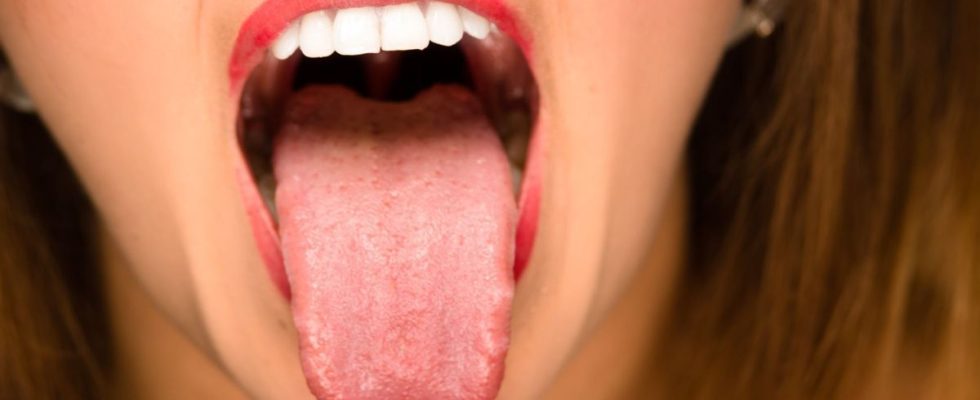Published on
Updated
Reading 2 min.
in collaboration with
Dr Gérald Kierzek (Medical Director of Doctissimo)
The tongue is rarely explored in consultation with the doctor. However, according to scientists, it could reveal a lot about our state of health. Explanations from Dr Gérald Kierzek, emergency doctor and medical director of Doctissimo.
In Chinese medicine, the tongue is studied to give indications about the patient’s state of health. In Western medicine, on the contrary, this organ is studied very little, in consultation. However, it is on language that computer scientists decided to rely on to set up a program, based on artificial intelligence, in order to detect pathologies based on its color.
Photos of tongues of different colors, depending on the pathologies
Iraqi and Australian engineers worked to develop a program based on artificial intelligence. They captured photos of around fifty languages of patients affected by diabetes, kidney failure or anemia, to compare their colors with those of a database containing more than 9,000 languages.
An accurate diagnosis in 94% of cases
By testing their program, the scientists made the correct diagnosis in 94% of cases, for three pathologies. “Diabetic patients typically have a yellow tongue, cancer patients a purple tongue with a thick fatty coating, and acute stroke patients present with a red tongue that is often twisted” they note. In addition to determining the disease, a message specifying the color of the tongue and the related pathology was also sent to the patient and the prescribing doctor.
Professor Ali Al-Naji explains: “Thousands of years ago, Chinese medicine was the first to examine the tongue for disease. Conventional medicine has long endorsed this method, demonstrating that the color, shape and thickness of the tongue can reveal signs of diabetes, liver problems, circulatory and digestive problems..
For the specialist, “Computerized tongue analysis is very accurate and it could help diagnose diseases remotely in a safe, effective, easy, painless and cost-effective manner. Which is particularly relevant in the wake of a global pandemic like Covid.”
“This is an interesting step forward, because we rarely look at the language of patients”
For Dr Gérald Kierzek, this is a relevant step forward: “It’s interesting because we rarely look at the language in consultation. If this tool makes it possible, thanks to artificial intelligence, to detect objective signs of an illness, this is positive because it brings current medicine closer to a more global, holistic approach, centered on the examination of the patient.“.
For the doctor, this would allow “look more at the patient’s tongue, which is not observed enough“. But it’s “a simple way to make a first diagnosis, sometimes of a serious pathology such as HIV when we discover for example Kaposi’s sarcoma, which is expressed in particular by whitish plaques on the patient’s tongue and gums” he adds.
Observing a patient’s tongue is therefore essential to also identify certain more benign pathologies, such as candidiasis.
Deposits may indicate the presence of digestive disorders in the patient. “We call it a sabbural language.” specifies the doctor.
Finally, the medical director of Doctissimo recalls that the tongue can also be the site of tumors: “A sore on the tongue that does not heal after three weeks should prompt consultation.” he concludes.
